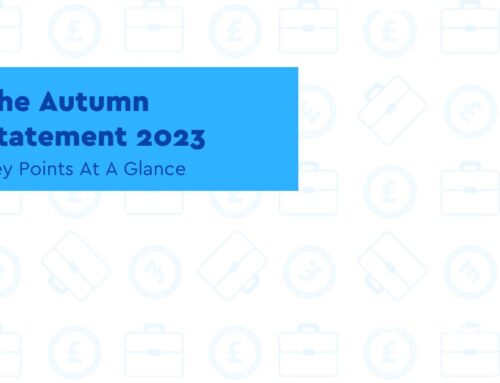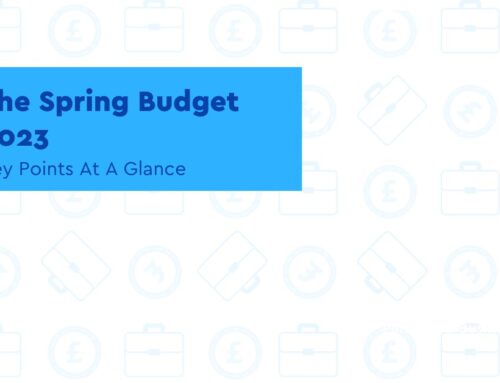News – Energy Plan
PM unveils new energy plan
Key Points
- Businesses and public sector organisations will see equivalent support over the winter
- Package will boost growth and curb inflation rises
Prime Minister Liz Truss has announced the Government’s new plan to support households and businesses through the ongoing energy crisis, said to be worth up to £150 billion.
Under new plans, a typical UK household will pay no more than £2,500 a year on their energy bill for the next two years from 1st October, through a new Energy Price Guarantee which limits the price suppliers can charge customers for units of gas. This takes account of temporarily removing green levies, worth around £150, from household bills. The guarantee will supersede the existing energy price cap.
The £400 discount on energy bills for all households promised by former Chancellor Rishi Sunak earlier this year is also being kept.
Chancellor of the Exchequer Kwasi Kwarteng is expected to outline the costs of this package in a fiscal statement later in September.
The Prime Minister confirmed the Government will not be calling for a windfall tax on energy companies to pay for the plan – borrowing will increase instead.
Jonathan Geldart, Director General of the Institute of Directors, said:
“It is encouraging that the intervention will itself put downwards pressure on consumer price inflation, which has been top of the business worry list for the best part of a year.”
The new guarantee will apply to households in Great Britain, with the same level of support made available to households in Northern Ireland.
Those households who do not pay direct for mains gas and electricity – such as those living in park homes or on heat networks – will be no worse off and receive support through a new fund.
News – Apprenticeship levy
Apprenticeship levy guidance updated
Key Points
- The updated guidance for off-payroll working states that you must include payments to intermediaries
- These payments are treated as employment income and subject to Class 1 National Insurance contributions
The apprenticeship Levy is a UK tax on employers which is used to fund apprenticeship training.
Introduced at the start of the 2017/18 tax year, it is payable by all employers with an annual pay bill of more than £3 million, at a rate of 0.5% of their total pay bill. It is collected through the Pay as you Earn process alongside other employment taxes.
There are sectors that have specific rules for paying Apprenticeship Levy, including off-payroll working, franchises, short-lived companies, managed service companies and employment or recruitment agencies.
The general scope of guidance is covered within the ‘paying HMRC’ section of gov.uk, and has been updated this week, with information added about the off-payroll working rules applying to medium and large-sized clients outside the public sector from April 2021.
The updated guidance for off-payroll working states that you must include payments to intermediaries, such as a personal service company, a partnership or other individual, which are subject to the off-payroll working rules.
This applies to payments for services provided through intermediaries to:
- public authorities (from April 2017)
- medium and large-sized clients outside the public sector (from April 2021)
These payments are treated as employment income and subject to Class 1 National Insurance contributions.
This does not apply to payments for services provided through intermediaries to private sector clients that are small or have no UK connection.
As well as that, the guidance includes sections on using the levy allowance, working out how much you owe, reporting how much you owe and how to pay.
You can read it in full here.
News – Economy
Inflation set to hit 14%
Key Points
- Annual expectations for GDP growth also continue to decline, with a 3.3% forecast for 2022
- However, unlike the Bank of England, the BCC expects the economy to grow in 2023
The British Chambers of Commerce (BCC) has said the UK will enter recession before the end of this year with inflation spiking to 14%.
UK business leaders are expecting the country to enter recession before the year’s end and have called for emergency covid-style government support to help businesses with soaring energy costs.
The BCC is now forecasting a recession for the UK economy with three consecutive quarters of contraction between Q2 and Q4 in 2022. Annual expectations for GDP growth also continue to decline, with a 3.3% forecast for 2022, below the 7.4% growth recorded in 2021.
However, unlike the Bank of England, the BCC expects the economy to grow in 2023, albeit at a low 0.2%.
Inflationary pressure is expected to peak at 14% in the fourth quarter of this year, falling to 5% by the end of 2023, according to the Consumer Price Index (CPI). This is up from the previously projected rate of 10%.
Business investment is set to grow to 2.7% in 2022, driven by growth in building and construction. However, it is expected to increase by only 0.6% in 2023, slightly down from the 0.8% growth predicted in Q2.
The forecast also expects UK unemployment to be 3.8% in 2022, before rising to 4.1% in 2023 and 2024.
Alex Veitch, director of policy at the British Chambers of Commerce, said: ‘Our latest quarterly economic forecast will not be of any comfort to either consumers or businesses. The extreme inflationary pressures already present are only likely to increase as we head towards Christmas; with the UK economy already thought to be in recession.’
Veitch said tackling inflation pressures must be at the top of the new Prime Minister’s inbox when they take up their position next week.
‘Inflation is running rampant, and it is not only impacting the cost of doing business, but also the ability of some firms to keep their doors open. In January, the BCC found that 23% of businesses surveyed were looking to scale down or even consider closure in response to rising costs.
‘Action is needed now, and the BCC has set out a comprehensive plan for Government to provide vital support to firms.’
The BCC business support plan includes covid-style support by introducing a Government Emergency Energy Grant, a temporary cut in VAT on energy bills to 5% to reduce costs for firms and increased regulation of the energy market for businesses by Ofgem.
Veitch added: ‘Through our extensive research and forecast work, we know the problems currently facing businesses. Time is fast running out, the Government must step up to the plate and do what is needed to protect businesses, livelihoods, and jobs.’
This article was derived from Accountancy Daily: https://www.accountancydaily.co/inflation-set-hit-14
News – Finance
Key dates to help you with your finances this autumn
Key Points
- The new prime minister, Liz Truss, will be expected to make a financial statement as soon as possible
- The 80% rise in the energy price cap will come into force in October
From Universal Credit cost-of-living payments through to the next energy price cap announcement, this autumn is shaping up to be anything but calm.
Here, we highlight the important dates to keep an eye in the coming months to help you to manage your finances.
September 13
The Office for National Statistics (ONS) will announce wage increase data, covering May to July 2022. This feeds into the “triple lock guarantee” which underpins the rise in state pensions in April. This figure isn’t expected to drive the increase because the inflation figure (measured in September and announced in October) is likely to be higher.
14/21 September – Fiscal announcement
The new prime minister, Liz Truss, will be expected to make a financial statement as soon as possible, laying out plans to help with the cost-of-living crisis. She could bring forward a mini-budget to parliament by the end of the month before conference recess on September 22nd, with the OBR having already confirmed to the Treasury that it started work on July 29 so it would be ready to publish an economic and fiscal forecast in September.
September 15
The Bank of England Monetary Policy Committee will make its next interest rate announcement. At the moment, a 0.5% rise is widely predicted.
September 22
The new UK and London Living Wage rates for 2022-2023 will be announced. This is the voluntary real living wage rather than the government minimum.
September 30
This is the last day that the old paper £20 and £50 notes can be used. After this date, you won’t be able to spend them in stores. Many banks will accept withdrawn notes as deposits from customers. The Post Office may also accept withdrawn notes as a deposit into any bank account you can access at the Post Office.
Other September announcements to keep an eye on
A law in England is expected to be announced at some point in September. It will protect parents from needless school uniform costs for branded items. This law already exists in Scotland. Schools will have until September 2023 to bring the changes in if it means they need to find a new supplier.
Another law is also expected to change in September to allow unmarried parents to claim bereavement benefits.
October 1
The 80% rise in the energy price cap will come into force in October, pushing the cost per year for dual fuel for the average household from £1,971 to £3,549.
October 5
This is HMRC’s deadline to register for self-assessment tax returns.
October 19
September’s inflation figure will be announced on this date. This is used as one of the measures in the triple lock on the state pension, as well as the basis for uprating benefits too. There are concerns that due to the timing it won’t reflect October’s energy price cap hike or any further rises in January and April next year. By the time the inflationary increase kicks in next April, prices could have risen significantly beyond this level.
October 31
The deadline for submitting paper tax returns is midnight October 31. It is worth noting that the deadline for online tax returns is midnight on January 31, 2023.
Other potential announcements
Another announcement to look out for is the date for second cost-of-living payment for people on universal credit, pension credit and other means-tested benefits, following the first payment in July. The second payment of £324 will be made during the autumn but a date hasn’t been confirmed yet.
November 3
This date marks the next interest rate announcement. At the moment the market is expecting another rise, which could be as much as 0.5%.
November 24
The energy price cap for January will be announced on this date and, bar a resolution of the conflict in Ukraine, it is widely expected to spell more bad news for households.
Other November announcements
The cost-of-living payment for pensioners will be rolled up and paid with the winter fuel allowance. This will be paid to anyone over the state pension age in November or December. The total you receive will depend on your age and living circumstances.
Cold Weather payments will also be made from November of this year. In England and Wales, older people and those on specific benefits will get £25 for each seven-day period between November and the end of March that the average temperature outside is below freezing. In Scotland, this has been replaced by a £50 one-off payment to everyone who qualifies in February, regardless of how low the temperature gets.
Pensions industry shares ‘wish list’ for new PM
Pensions industry experts have identified a number of key areas they think should be addressed following the appointment of Liz Truss as Prime Minister.
This includes revisiting the money purchase annual allowance and focusing on putting consumers back at the heart of pensions, by finally legislating a 10-day pension switch guarantee.
While Truss has pledged to continue the state pension triple lock, speculation as to other pension issues that could be addressed by the new PM is growing, with a number of industry experts sharing their ‘wish list’ for the new PM.
Truss will also be expected to provide further detail on plans to address issues around pensions taxation, having previously committed to addressing pension tax issues that are leading to senior NHS staff retiring early.
House prices bounce back in August
House prices edged back up in August reversing the dip seen in July but average growth slowed.
Values grew by 0.4% last month after falling by 0.1% in July with the average home reaching a new record high of £294,260, according to Halifax.
Meanwhile, annual price increases cooled slightly to 11.5%, from 11.8%.
Wales topped the list with house prices rocketing by 16.1% annually. Average prices in the nation have jumped by £31,246 over the past year.
The South West also had bumper growth of 14.5%. And London’s price increases have reached their highest level in six years at 8.8%.
Experts widely expect house price growth to dampen in the coming months as higher interest rates and the cost of living stretch household finances.
Get In Touch
At Morgan Reach, we understand every business needs a little help now and again-especially when it comes to the financial side of things. Therefore, to help our clients and visitors we endeavour to cover as much of the business news as possible. If you are self-employed or run a business and need assistance and advice on how these news could make a difference to you or your business, feel free to get in touch with the experts at Morgan Reach. Our business growth experts at Morgan Reach will guide you through what support is available for you or your business as well as the latest news that may affect you.







